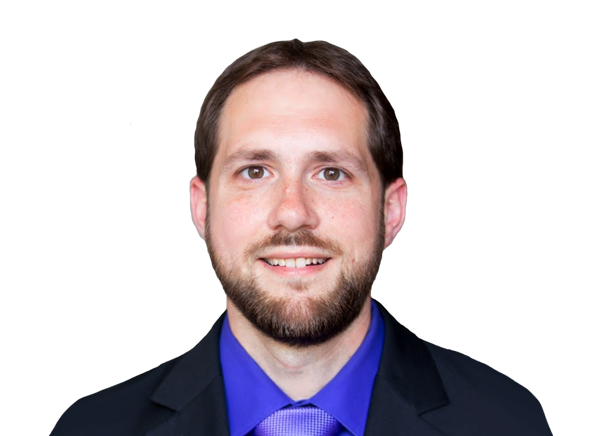The second annual NBA Cup is in the books, with the Milwaukee Bucks dominating a poor-shooting Oklahoma City Thunder team 97-81 in Tuesday’s anticlimactic final in Las Vegas.
As compared to last year’s inaugural edition, briefly called the less memorable In-Season Tournament, this NBA Cup felt more mature as a concept. Teams understood how to navigate the point differential tiebreaker from day one and bought into the significance of the NBA Cup despite (largely unfounded) concerns about how it might hurt them down the line.
The result was a tantalizing final matchup pitting the favorite to win the Western Conference against a championship hopeful from the East and featuring two of the top contenders for MVP in Milwaukee’s Giannis Antetokounmpo — who won NBA Cup MVP honors — and Oklahoma City’s Shai Gilgeous-Alexander.
Let’s relive how we got there by looking at some superlatives from the NBA Cup group and knockout stages, including my picks for the awards handed out by the league — MVP and All-NBA Cup Team — as well as unofficial picks for top rookie, best coach, best game and more.


MVP: Giannis Antetokounmpo, Milwaukee Bucks
One of my lasting memories from last year’s semifinals was Antetokounmpo coming to terms with his team’s loss to the Indiana Pacers in the postgame news conference. He ensured only his opponents would feel that frustration this time around.
Antetokounmpo averaged 31.7 points per game in this year’s knockout rounds, coming within an assist of a triple-double in the semifinal win over the Atlanta Hawks before recording a triple-double against the Thunder.
More than even those outstanding stats, Antetokounmpo set the tone for his team with playoff-caliber defensive intensity. His block on Trae Young in the fourth quarter against Atlanta was the most memorable play of the knockout round. Against OKC, Antetokounmpo had three blocks and two steals. There was never a doubt about who was the MVP during the final.
All-NBA Cup Team
Giannis Antetokounmpo, Milwaukee Bucks
Shai Gilgeous-Alexander, Oklahoma City Thunder
Damian Lillard, Milwaukee Bucks
Alperen Sengun, Houston Rockets
Antetokounmpo and Gilgeous-Alexander were locks, and so too was Lillard.
The Bucks had the strongest one-two punch of the teams to reach the knockout stages, with Antetokounmpo and Lillard combining to average nearly 60 points and more than 16 assists per game in the tournament.
Young led Atlanta’s run to the semifinals with 24.2 PPG and 10.8 APG, more than any other player in NBA Cup play.
Choosing a representative from the semifinalist Houston Rockets was the most difficult. No Houston player averaged more than 20 PPG, and Sengun wasn’t particularly efficient in NBA Cup games overall. But his 26 points, 11 rebounds, 5 assists and 3 steals versus the Golden State Warriors in the quarterfinals were enough to give him the final spot.

Coach of the NBA Cup: Doc Rivers, Milwaukee Bucks
Milwaukee didn’t run a challenging gauntlet toward the final, and it benefited from the Thunder’s off-shooting night once there, but it’s impossible to deny Rivers’ work over the course of the Bucks’ undefeated run. Milwaukee’s defense was a mess at this time a year ago, dropping to 22nd on a per-possession basis after the Pacers torched them for 128 points in the semifinals.
This time around, the Bucks were well-prepared despite playing the final without wing Khris Middleton due to illness. Milwaukee’s game plan of packing the paint and forcing Oklahoma City to win the game with jumpers was the correct one, and the Bucks get plenty of credit for the Thunder’s 44% shooting inside the arc.
Shoutout also to Milwaukee assistant Darvin Ham, who led the Los Angeles Lakers to last year’s tournament victory and has yet to lose an NBA Cup game.
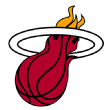
Biggest coaching miscue: Erik Spoelstra, Miami Heat
Spoelstra is rightly regarded as one of the NBA’s top coaches, and perhaps even the best, but he wasn’t at his sharpest during overtime of the Heat’s NBA Cup opener against the Detroit Pistons. Up two points with under two seconds remaining in overtime after a Tyler Herro score, Miami saw Cade Cunningham lob the ball to Jalen Duren for a dunk off an out-of-bounds situation.
Frustrated by the team’s poor execution, Spoelstra called a timeout Miami didn’t have remaining, allowing the Pistons to win on Malik Beasley‘s technical free throw.
A victory would have started Miami’s cup campaign on the right foot and given the Heat a chance of advancing as either the group winner or the Eastern Conference wild card heading into the final night of group play.

Rookie of the NBA Cup: Jared McCain, Philadelphia 76ers
A truly amazing stat: Entering Tuesday’s final, all first-year players had combined to score 14 total points in six knockout stage games. No. 1 draft pick Zaccharie Risacher started all six games as the Hawks advanced to the semifinals but shot 2-of-19 from 3-point range and averaged 6.3 PPG. So, the Rookie of the Cup race looked a lot like the real one did prior to McCain’s untimely knee injury.
McCain averaged 24.8 points in four NBA Cup group games, making 18 3-pointers at a 51% clip. That edged the Lakers’ Dalton Knecht, who also made 18 3s (shooting 54.5%) but wasn’t quite as prolific inside the arc, averaging 19.5 PPG.
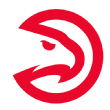
Most improved team: Atlanta Hawks
Oklahoma City made the biggest jump in terms of results after going 1-3 in last year’s edition, but the Thunder actually had a plus-24 differential by virtue of a blowout win and three close losses.
The Hawks were easily the most unlikely team to reach the semifinals after starting the season 4-7 before the beginning of NBA Cup play. Even over the past month, Atlanta went 5-1 in NBA Cup games (highlighted by a Trae Young-led upset over the Knicks in the quarterfinals) and 6-4 in all others, including a 30-point home loss to the Denver Nuggets.
Atlanta works on a couple of levels, both for its in-season improvement and year over year. In the 2023 tournament, the Hawks went 1-3 with their only win over the lowly Pistons and were outscored by 32 points — the worst point differential of any team that reached this season’s knockout stages, let alone the semifinals.

Biggest disappointment: Cleveland Cavaliers
Group C in the East featured the conference’s top two teams this season, Cleveland and the Boston Celtics, yet the Hawks emerged as unlikely winners. The Celtics at least finished second and would have advanced as the East’s wild card had the Orlando Magic defeated the New York Knicks on the last night of group play.
The Cavaliers were long eliminated by then, having lost both to Atlanta and in a showdown in Boston to finish at 2-2. The NBA Cup looked like a golden opportunity for Cleveland to hang a rare banner. Instead, the Cavs will have to hope their strong start translates into a deep playoff run in the spring.
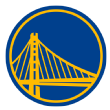
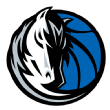
Best game: Golden State 120, Dallas 117
The first night of NBA Cup play produced the most memorable matchup: Klay Thompson returning to the San Francisco Bay Area to face the Warriors for the first time since leaving for the Mavericks via a sign-and-trade deal over the summer.
Both player and team handled the emotional reunion (complete with sailboat captain hats) perfectly, with Thompson making six 3-pointers and scoring 22 points. The finish lived up to the hype too, with Stephen Curry scoring the final 12 points for Golden State, which rallied from a 114-108 deficit with 3:10 to play to win a contest that wasn’t decided until Luka Doncic missed a potential game-tying 3-pointer in the closing seconds.
Both teams advanced to the knockout stages, but the outcome gave Dallas a tougher matchup at Oklahoma City in a quarterfinals loss.
0:28
Klay Thompson walks in to ovation from Warriors employees
Before playing Golden State, Klay Thompson returns to Chase Center to an ovation from Warriors employees.

Most disappointing injury: Franz Wagner, Orlando Magic
The Magic were one of the best stories of group play, overcoming the absence of All-Star Paolo Banchero to win their first three games in convincing fashion and claiming the East wild card after losing at Madison Square Garden.
Wagner was arguably the MVP of the group stage, having averaged 30.5 points, 7.5 rebounds, 6.3 assists and 2.5 steals while stepping into Banchero’s role as go-to guy on offense. Alas, by the time Orlando got to Milwaukee for the quarterfinals, Wagner had joined Banchero on the sidelines after suffering an identical injury (oblique tear) the previous weekend.
Without Wagner, the Magic put up a good fight but lost 114-109, ending the hopes of one of eight active franchises without an NBA championship laying claim to the NBA Cup.
